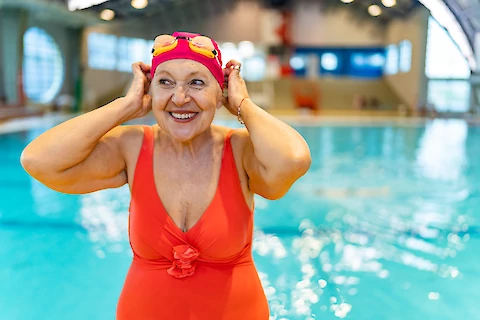
Cardiovascular disease is a common health challenge faced by many seniors. As caregivers, it's crucial to understand how to manage this condition effectively to support the overall well-being of our loved ones. One of the most beneficial strategies for managing cardiovascular disease involves incorporating suitable exercise routines into the daily lifestyle of seniors. Exercise not only enhances heart health but also improves the quality of life. This article delves into the importance of physical activity for heart health, explores suitable exercises considering the abilities and limitations of seniors and emphasizes the value of seeking professional medical advice before initiating any new fitness regimen. We want to help equip you as a caregiver with the vital knowledge and practical strategies to care for your senior loved one battling cardiovascular ailments optimally.
The Role of Physical Activity in Heart Health
Regular physical activity is crucial for maintaining good heart health. Exercise strengthens the heart and improves circulation, helping lower the risk of heart disease by reducing factors like high blood pressure, high cholesterol and stress. Extensive research indicates that regular, moderate-intensity exercise improves cardiovascular health for seniors, even those with heart disease.
Suitable Exercises for Seniors with Cardiovascular Disease
It's essential to choose safe, effective activities that match the seniors' abilities and limitations to optimize the benefits of exercise. Low-impact exercises such as walking or swimming often make suitable choices. These activities provide cardiovascular benefits without straining joints. Light aerobics may also be beneficial, aiming for about 150 minutes each week spread over several days to avoid fatigue.
It's vital to start slow, gradually increasing intensity and duration as the senior's strength and stamina improve. It's also essential to ensure seniors stay hydrated and take breaks as necessary.
The Importance of Medical Guidance
Before beginning any exercise regimen, seeking guidance from a healthcare professional is important. They will assess the senior's health status, recommend suitable exercises and provide necessary precautions to avoid injury or excessive strain. Be sure to ask what signs of overexertion to watch for and when to call for medical assistance.
Practical Strategies for Caregivers
As caregivers, our role involves encouraging seniors to exercise and making the process as comfortable, safe and enjoyable as possible. These responsibilities may mean setting a regular schedule, making exercise a social activity or integrating it into daily routines such as walking during grocery shopping. It's also essential to monitor progress and adjust exercise routines as needed.
Caregivers need to practice patience, encouragement and attentiveness, understanding that every small step towards an active lifestyle significantly affects heart health.
We Can Help
Regular, suitable exercise guided by professional advice plays a pivotal role in managing cardiovascular disease in seniors. As caregivers, it's vital to understand this and incorporate exercise into their daily care plan. If you live in Kennewick, Walla Walla, Richland, Pasco or Clarkston and need expert support in caring for your loved ones, contact us today at Senior Helpers Tri-Cities and SE Washington. Our team provides knowledgeable and compassionate care to seniors, helping them enjoy a healthy and fulfilling life. We'd love to discuss our services with you, like Wellness Watch and Personal Care.